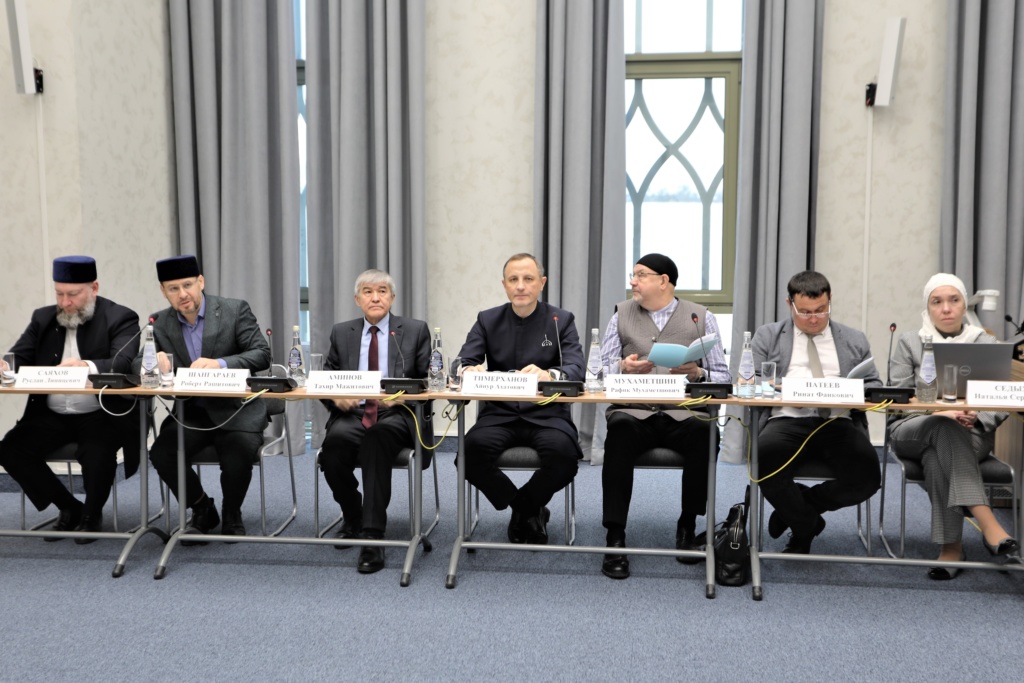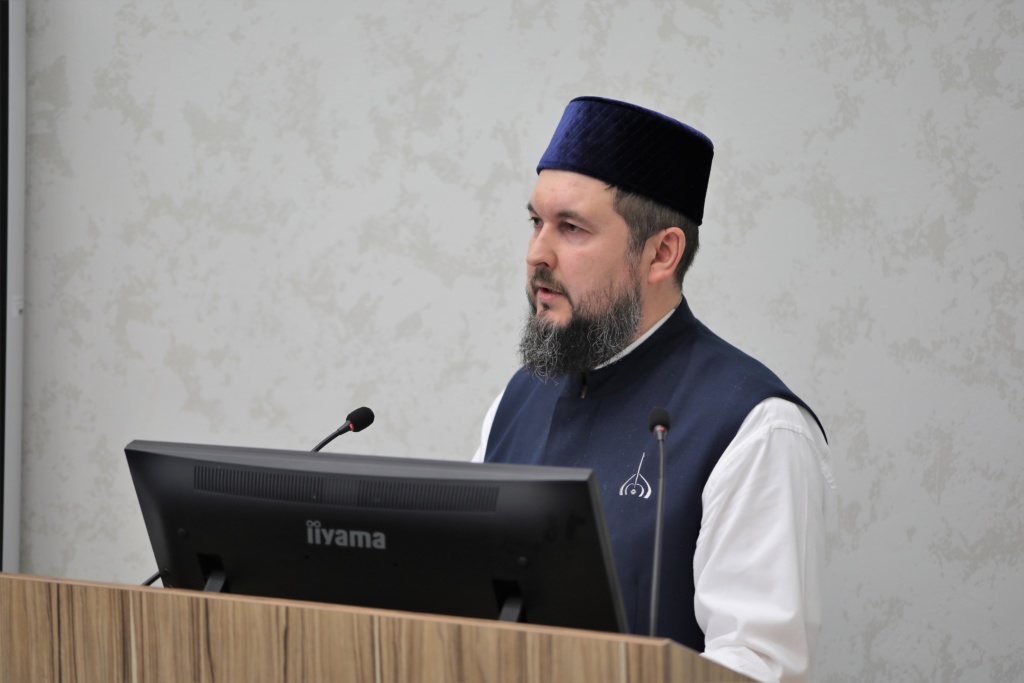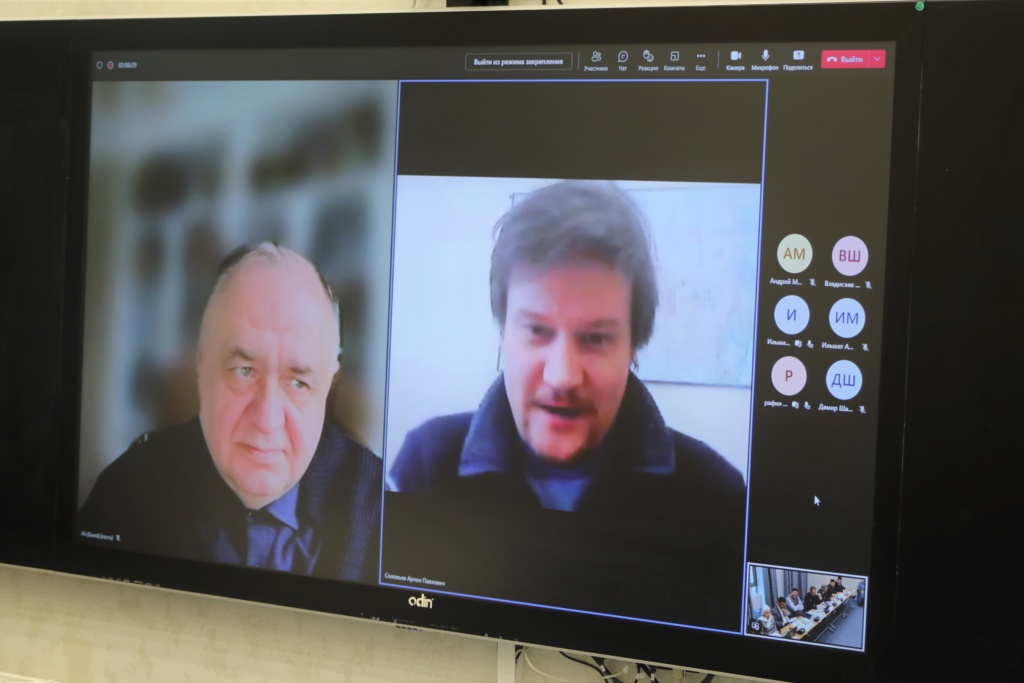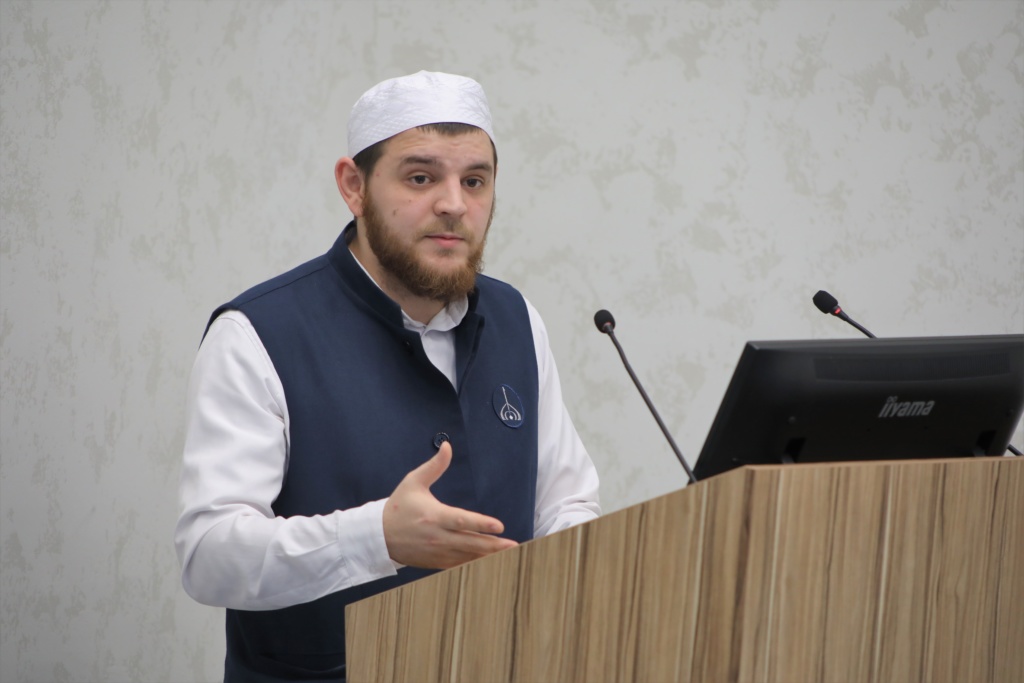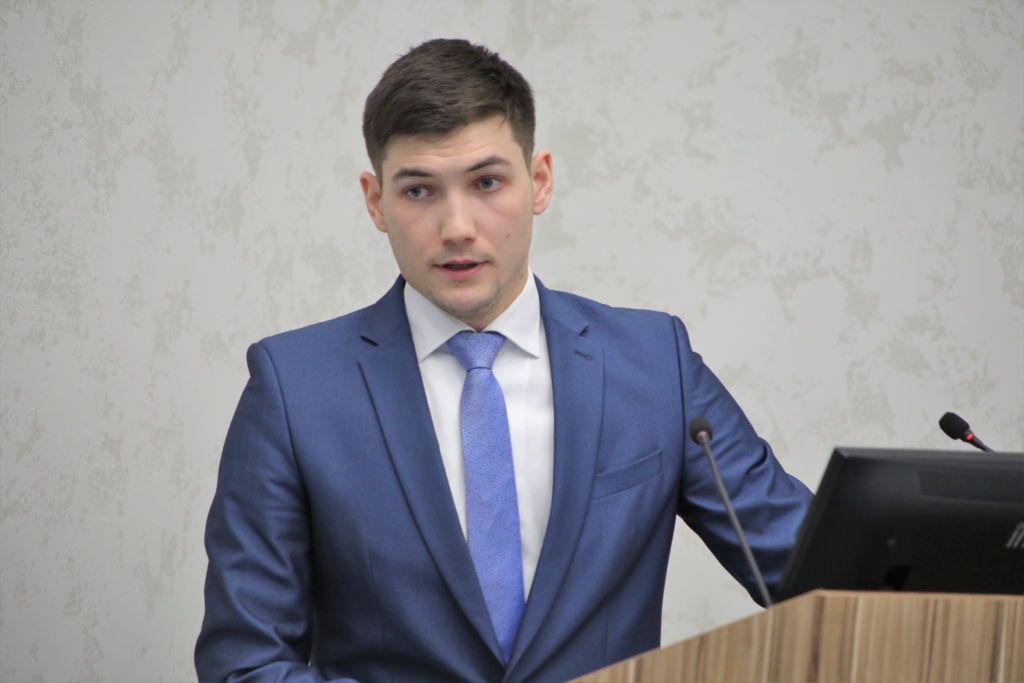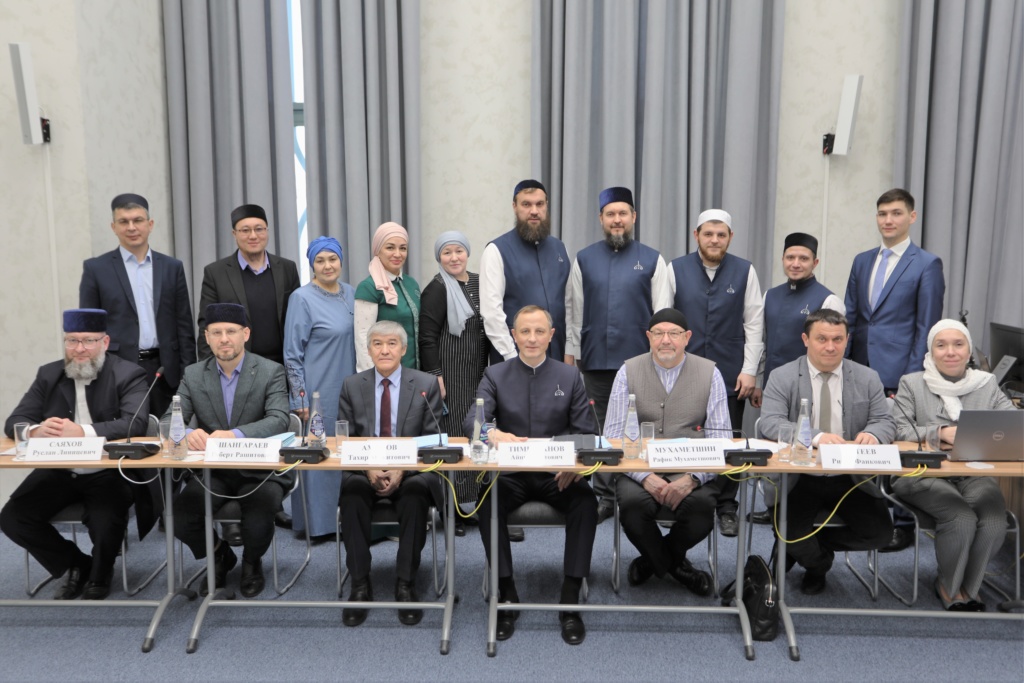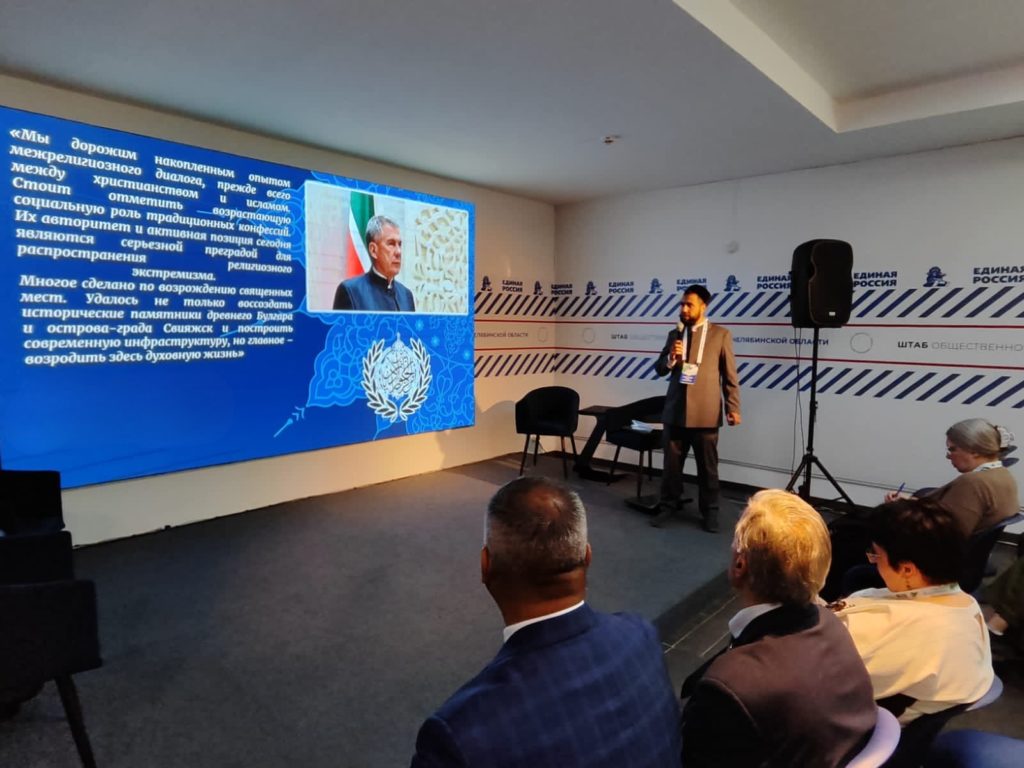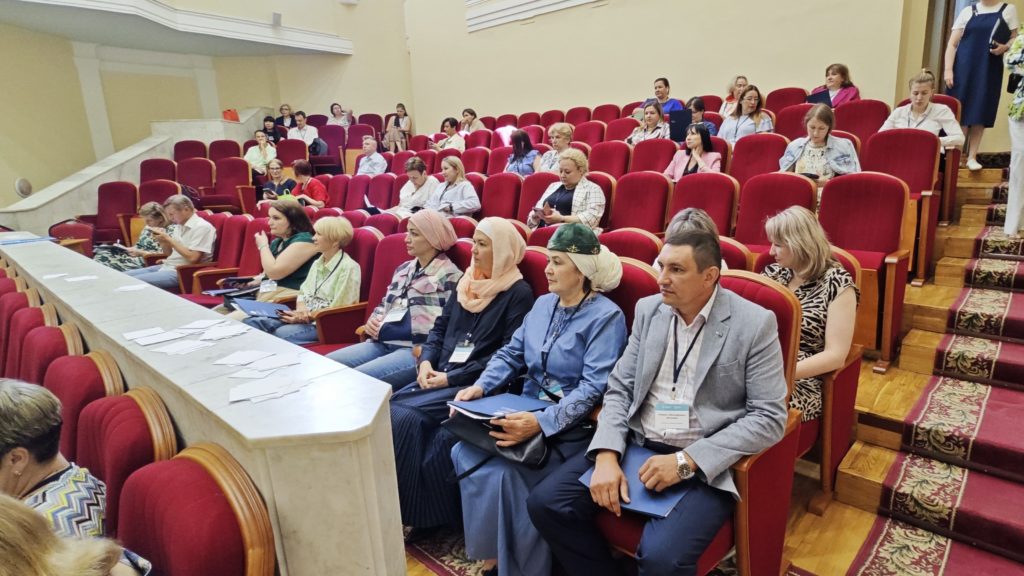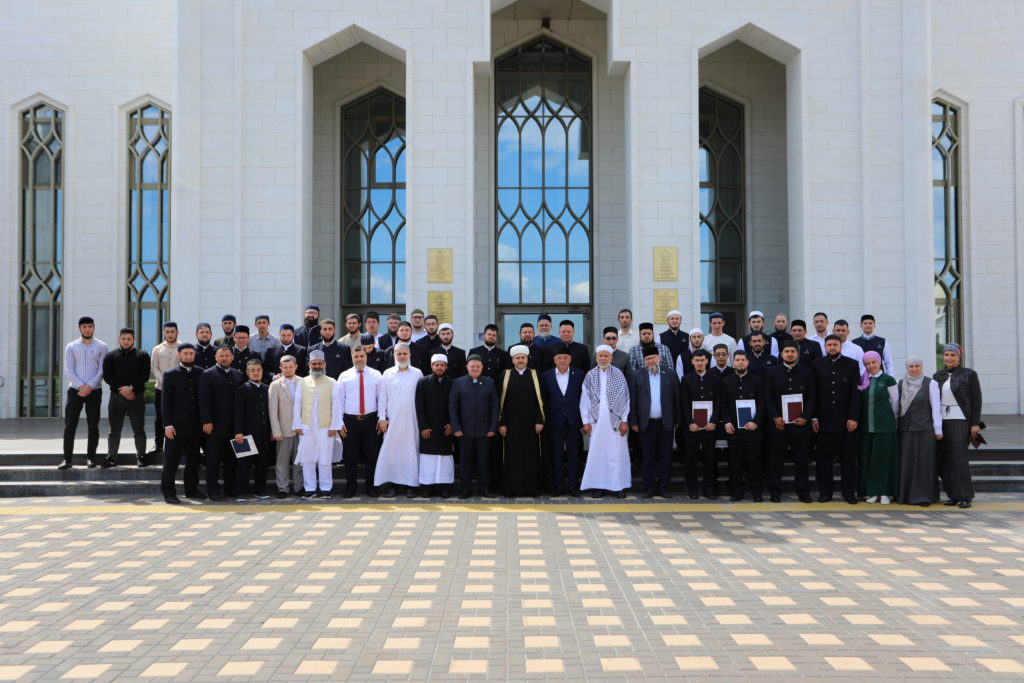On December 22, for the first time in the walls of the Bolgar Islamic Academy defended the final qualifying works of Master’s students who studied in the field of «Theology».
The works were evaluated by the final attestation commission under the chairmanship of doctor of political sciences, professor Rafik Mukhametshin. The commission also included Acting Rector of the Bolgar Islamic Academy, Doctor of Philological Sciences, Associate Professor Ainur Timerkhanov, Doctor of Philosophy, Professor of the Academy Ali Vyacheslav Polosin, Associate Professor of Pedagogy Department of Bashkir State University named after M. Akmulla, Doctor of Pedagogical Sciences, Professor Tahir Aminov, Dean of theology Department of the Russian Islamic Institute, PhD in History Robert Shangaraev, Director of the Centre for Islamic Studies Research of the Academy of Sciences of RT, PhD in Political Sciences Rinat Pateev, Director of the Centre for the History of Islam, PhD in Philosophy, professor Rinat Mukhametshin.
Master’s student Bulat Raupov presented his work on “The practice of applying the paradigm of the Prophet to solve inter-ethnic and inter-regional issues in the activities of an imam in the Republic of Tatarstan”. The academic supervisor was Ali Vyacheslav Polosin, and the reviewer was Olga Pavlova, Associate Professor of the Department of Theology of the Academy, Head of the Department of Ethnopsychology and Problems of Multicultural Education of the Faculty “Social Psychology” of the Moscow State University of Psychology and Pedagogy. According to the results of his research work the Master’s student came to the conclusion that the model of Islamic education in Tatarstan can serve as a paradigm in solving interethnic and interconfessional issues, and also noted that the example of the Prophet Muhammad (“peace be upon him”) regarding the Medina agreement is a good help for the imam in the sphere of strengthening interconfessional accord. In addition, the master presented the experience of Leninogorsk mukhtasibat in the harmonization of interethnic and interreligious relations.
Master’s student Malik Lyukhurov presented his study on “Coordination of activities of Muslim religious organizations and state institutions in the prevention of youth auto-aggression” to the commission. The scientific supervisor was Kamil Nasibullov, associate professor of the Department of Theology at the Academy, and the reviewer was Natalia Sedykh, associate professor of the Department of Theology at the Academy. The master’s student presented a number of recommendations for representatives of Spiritual Administrations of Muslims and state, municipal authorities on the reduction of auto-aggressive behavior of young people.
Dmitry Nekrasov devoted his research to the topic “Perception of women in hijab in secular society of the Russian Federation”. Kamil Nasibullov is the supervisor of the master’s student, and Natalia Sedykh is the reviewer. Within the framework of the dissertation the master’s student studied the requirements for hijab in Islam, as well as evaluated the attitude of secular and religious members of society to the wearing of the hijab.
Master’s student Kamil Samatov prepared a research paper on the topic “Formation and Development of Islamic Theology in the Volga Region. His academic supervisor was Artem Solovyov, Associate Professor at the Theology Department of the Academy, and the reviewer was Natalia Sedykh.
The academic adviser of Magomedkamil Uguyev’s master’s thesis on the theme ” Fetvo-creation in modern Russia: methodological approaches and practices” was Damir Shagaviyev, associate professor of the theology department of the Academy; the reviewer was Ramil Adygams, head of the Arabic language and humanitarian disciplines department of the Kazan Islamic University.
Ilyas Allagulov presented his research work on the topic “The rights and duties of spouses in Islam and Russian legislation: common and special. The academic supervisor of the master’s student was Ilshat Mukhametzaripov, senior lecturer of the Chair of Theology of the Academy of Sciences, and the reviewer was Vladislav Sherstoboev, senior research fellow of the Center for Islamic Studies of the Academy of Sciences of Tajikistan. Indicating the desire of ethnic Muslims to follow religious traditions in the sphere of marriage and family relations, the master noted a number of risks associated with the neglect of state norms of regulation of marriage relations, and pointed to the need for spiritual offices to develop a model marriage contract and expand this practice.
Finally, the final grading committee considered a study by Ravil Saitmuradov on “Social Support for Orphans in Islamic Law and the Legislation of the Russian Federation. Artyom Solovyov became the academic supervisor and Vladislav Sherstoboev became the reviewer.
According to the results of the decision of the grading commission 3 undergraduates received an “excellent” rating, among them Bulat Raupov, Malik Lyukhurov and Dmitriy Nekrasov. 4 master’s students were assessed as “good”: Ilyas Allagulov, Ravil Saitmuradov, Magomedkamil Uguyev and Kamil Samatov.
According to the chairman of the commission Rafik Mukhametshin, the master’s students chose topical contemporary problems faced by the Muslim community in Russia for their research.
“We see the use of historical and comparative analysis, the study of the practice of law enforcement of certain provisions. It is pleasant to note that the works are interesting, and the level of their professional preparation is good. With full confidence we can say that the first experience of graduating exactly masters in Islamic theology with a diploma of state standard is successful. We understand that for a theologian, gaining profound Islamic knowledge is not enough, so the first graduate of Masters can work in government agencies, educational institutions and religious organizations,” said Rafik Mukhametshin.
In turn, Acting Rector of the Academy Ainur Timerkhanov gave some instructions to the students, and also emphasized the high level of presentation of research papers and the ability to competently answer questions from the commission.
